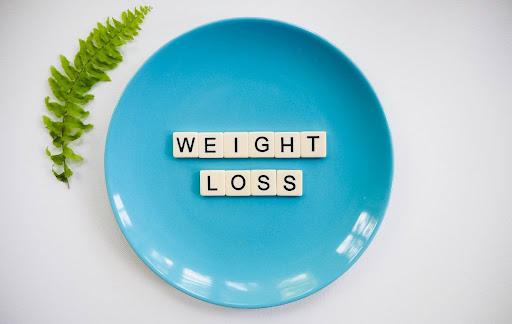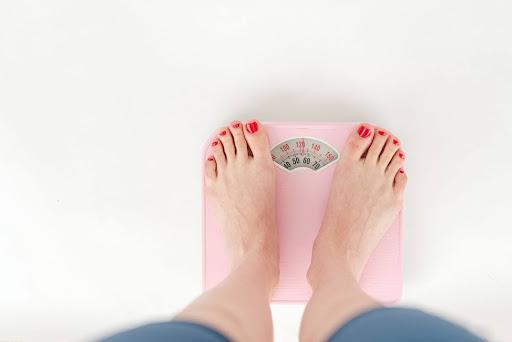Energy Gels for Weight Loss: Fact or Fiction?

In the quest for achieving weight loss goals, people often seek various supplements and products that promise quick results. One such product that has gained popularity is energy gels. Athletes and fitness enthusiasts commonly use these gels to provide a quick boost of energy during workouts. However, some marketing claims suggest that energy gels can also aid in weight loss. In this article, we will delve into energy gels and explore whether they are effective for weight loss or merely a marketing gimmick.
Key Takeaways:
- Energy gels serve as a rapid source of carbohydrates and are beneficial for athletes and fitness enthusiasts during intense workouts and endurance activities.
- While energy gels can provide quick energy, their direct role in weight loss is limited. Weight loss is best achieved through a balanced diet and regular exercise, creating a caloric deficit.
- Energy gels should be viewed as a supplement to support performance during workouts, not a substitute for a balanced diet. Proper nutrition and nutrient-dense foods are essential for sustainable weight loss and overall health.
- Timing is crucial when consuming energy gels during exercise. Athletes should strategically use them at regular intervals to maintain energy levels and delay fatigue.
- Weight loss requires a comprehensive approach that includes both diet and exercise. Energy gels are not a standalone solution for shedding pounds.
- A balanced diet should focus on nutrient-dense foods, including lean proteins, whole grains, fruits, vegetables, and healthy fats, while managing caloric intake.
- Engaging in regular physical activity, in addition to a balanced diet, helps create a caloric deficit and contributes to overall well-being.
- Always consult with a healthcare professional or registered dietitian for personalized advice and guidance on weight loss and nutrition goals.
By understanding the role of energy gels in exercise and the importance of a balanced diet and exercise, individuals can make informed decisions to support their overall health and fitness journey.
Understanding Energy Gels
What are Energy Gels?
Energy gels are a specialized form of sports nutrition product specifically designed to offer a rapid and easily accessible source of energy to athletes and fitness enthusiasts engaged in endurance-based activities. These gel-like substances come in single-serving sachets and are highly favoured by runners, cyclists, triathletes, and other individuals involved in prolonged workouts and events. Energy gels are particularly popular during long-distance races or intense training sessions, where maintaining energy levels is crucial for sustaining performance.
Composition of Energy Gels
Energy gels are carefully formulated to combine key nutrients that promote quick energy release and help combat fatigue. The primary components of energy gels include:
Carbohydrates:
- Energy gels primarily consist of carbohydrates, which are the main energy source during physical activity. These carbohydrates often blend simple sugars like glucose and fructose and complex carbohydrates like maltodextrin.
- Simple sugars are quickly absorbed into the bloodstream, providing an immediate energy boost, while complex carbohydrates release energy gradually, ensuring a sustained source of fuel during extended workouts.
- The optimal carbohydrate blend in energy gels helps prevent sudden spikes and crashes in blood sugar levels, ensuring a more steady and reliable supply of energy.
Electrolytes:
- Energiegele enthalten typischerweise essentielle Elektrolyte wie Natrium, Kalium usw magnesium. These minerals are vital in maintaining proper hydration and supporting muscular function.
- During intense physical activity, the body loses electrolytes through sweat. Including electrolytes in energy, gels help replenish these essential minerals, reducing the risk of dehydration and muscle cramps.
Caffeine (Optional):
- Some energy gels may also contain caffeine, a stimulant known for its ability to enhance alertness and focus. Caffeine can provide an additional mental boost during strenuous exercise, helping athletes stay motivated and maintain intensity.
- However, it's important to note that not all energy gels contain caffeine, and individuals with caffeine sensitivity or certain health conditions should be cautious about using caffeinated gels.
Energy Gels and Weight Loss

The Hype Surrounding Weight Loss
In the ever-growing market of weight loss products and supplements, some companies have capitalized on the popularity of energy gels by suggesting that these products can aid in shedding unwanted pounds. Their marketing claims often revolve around the notion that the quick energy provided by energy gels can boost metabolism and lead to more efficient fat burning. However, it is essential to take a closer look at these assertions and explore whether energy gels directly impact weight loss.
Analyzing the Claims
While energy gels can undoubtedly offer a rapid source of energy, the evidence supporting their direct role in weight loss is limited. Weight loss is a multifaceted process that primarily revolves around achieving a caloric deficit – burning more calories than one consumes. While helpful during intense workouts, energy gels do not possess magical properties that lead to substantial weight loss on their own.
Weight loss requires a comprehensive approach that includes dietary modifications, physical activity, and lifestyle changes. Relying solely on energy gels as a weight loss solution may lead to disappointment and unrealistic expectations.
Caloric Content and Considerations
Ein entscheidender Faktor, der bei der Bewertung von Energiegels zur Gewichtsreduktion berücksichtigt werden muss, ist ihr Kaloriengehalt. Da Energiegele als schnelle Energiequelle konzipiert sind, enthalten sie von Natur aus Kalorien. Für Personen, die abnehmen möchten, ist es wichtig, den Kaloriengehalt von Energiegels als Teil ihrer täglichen Gesamtaufnahme zu berücksichtigen.
Der Verzehr von Energiegels ohne Berücksichtigung ihres Kaloriengehalts kann zu unbeabsichtigten Folgen führen, z. B. versehentlich Erhöhung der täglichen Kalorienaufnahme. Dies kann Bemühungen zur Gewichtsabnahme behindern, insbesondere wenn die zusätzlichen Kalorien aus Energiegels das Kaloriendefizit übersteigen, das für eine wirksame Gewichtsabnahme erforderlich ist.
Gewichtsabnahme ist am erfolgreichsten, wenn der Einzelne seinen täglichen Kalorienbedarf klar versteht und bewusste Entscheidungen darüber trifft Essens- und Getränkekonsum. Energiegele können bei intensiven Trainingseinheiten Teil des Ernährungsplans eines Sportlers oder Fitnessbegeisterten sein. Dennoch sollten sie strategisch und zusammen mit einer ausgewogenen Ernährung zur Unterstützung der Abnehmziele eingesetzt werden.
Die Rolle von Energiegels beim Training

Energy During Workouts
Energy gels support athletes and fitness enthusiasts during intense workouts and endurance activities. As individuals engage in prolonged exercise, their body's glycogen stores, which serve as the primary fuel source, start to deplete. When glycogen levels deplete, the body may experience fatigue, reduced performance, and decreased overall energy levels.
Consuming energy gels during these demanding workouts can be highly beneficial. These specially formulated gels provide a rapid source of carbohydrates that are quickly absorbed by the body. These carbohydrates are readily available fuel sources, allowing athletes to replenish their glycogen stores and sustain their performance levels during prolonged activities.
Timing and Effectiveness
To fully harness the benefits of energy gels, proper timing is essential. Athletes should strategically consume energy gels at specific intervals during their workouts. The timing varies depending on the duration and intensity of the exercise, as well as individual factors such as body size, fitness level, and metabolic rate.
Many athletes follow a structured approach to energy gel consumption, taking them regularly during long-distance runs, cycling races, or other endurance-based activities. By doing so, they can maintain a sustained energy source, prevent premature exhaustion, and optimize their performance.
One common strategy is to take an energy gel approximately every 45 minutes to an hour during extended workouts. This interval ensures a consistent energy supply and helps delay the onset of fatigue. Athletes should also combine energy gel consumption with proper hydration by drinking water alongside the gels.
It's important to note that while energy gels are crucial in supporting athletic performance during workouts, their benefits are primarily related to providing energy for exercise. While the rapid supply of carbohydrates can enhance endurance and prevent bonking (a sudden depletion of energy during prolonged activity), energy gels do not directly contribute to weight loss.
Weight loss is influenced by overall caloric intake, metabolic rate, and physical activity beyond workouts. Consuming energy gels without considering their caloric content and comprehensive dietary plan may not lead to effective weight loss.
The Importance of a Balanced Diet and Exercise
The Foundation of Weight Loss
While energy gels can serve as a convenient option for athletes and individuals engaged in rigorous workouts, they should not be mistaken as a replacement for a balanced diet and regular exercise. When achieving sustainable weight loss, the key lies in adopting a holistic approach that includes proper nutrition and physical activity.
Weight loss is a complex process that involves creating a caloric deficit – expending more calories than one consumes. While energy gels can provide a quick energy source for intense workouts, they do not possess the comprehensive qualities needed to address all aspects of weight management.
Balancing Caloric Intake
To effectively lose weight, individuals must pay close attention to their caloric intake. A balanced diet encompassing various nutrient-dense foods is crucial for achieving weight loss goals. Nutrient-dense foods provide essential vitamins, minerals, and other beneficial nutrients while keeping caloric intake in check.
While energy gels can be helpful during physically demanding activities, they should not be a primary means of calorie consumption. Instead, energy gels should be viewed as a supplement to support athletic performance during workouts. The bulk of one's caloric intake should come from well-rounded meals incorporating lean proteins, whole grains, fruits, vegetables, and healthy fats.
A caloric deficit can be achieved by finding the right balance between caloric intake and energy expenditure through exercise. Engaging in regular physical activity not only burns calories but also contributes to overall health and well-being. Combining exercise with a balanced diet maximizes the potential for successful weight loss and helps maintain a healthy lifestyle in the long term.
Conclusion
Energy gels can be a useful tool for athletes and fitness enthusiasts seeking a quick source of energy during intense workouts. However, their role in weight loss is often exaggerated, and they should not be solely relied upon for shedding pounds. Achieving sustainable weight loss requires a holistic approach involving a balanced diet, regular exercise, and a healthy lifestyle.
Frequently Asked Questions (FAQs)
Q. Are energy gels a replacement for meals during weight loss?
No, energy gels should not be used as a meal replacement. They are designed to provide energy during intense workouts and should be consumed as part of a well-balanced diet.
Q. Can energy gels help with fat burning?
While energy gels can provide a quick source of energy, there is no scientific evidence to suggest that they directly aid in fat burning or weight loss.
Q. Are energy gels suitable for everyone?
Energy gels are generally safe for healthy individuals. However, those with certain medical conditions or allergies should consult a healthcare professional before using them.
Q. How often should I consume energy gels during a workout?
The frequency of consuming energy gels during a workout depends on the duration and intensity of the exercise. It is best to follow the recommended guidelines provided by the manufacturer or consult with a fitness expert.
Q. Can energy gels be used for everyday activities?
Energiegele sind für intensive körperliche Aktivitäten und Ausdauerübungen konzipiert. Sie sind für einen anderen als den alltäglichen Gebrauch bestimmt und möglicherweise nicht für Personen geeignet, die eine sitzende Tätigkeit ausüben.
